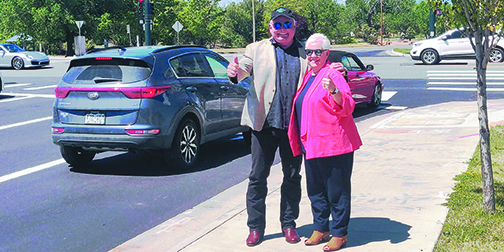
Bull & Bush Brewery




by Mark Smiley

Several safety improvements at the South Colorado Boulevard and East Virginia Avenue intersection were recently completed. On May 27, 2020, Glendale Public Works hosted a vehicle parade to celebrate the work that was completed. This intersection now features new signal poles and a widened intersection which has new turn lanes. The project was funded with CDOT Highway Safety Funds and the City of Glendale General Fund.
“This is a long time coming,” said Mayor Mike Dunafon. “We worked hard to form the right partnerships including the City of Denver. Today, we are happy to enjoy a much safer and smooth intersection.”

The intersection is now widened by 30 feet, adding two lanes for vehicle traffic and 8-foot pedestrian sidewalks. New ADA pedestrian crossings are now on all four corners of the intersection which includes the City of Denver side. Westbound travelers on East Virginia Avenue now have a dual left turn lane as well as a dedicated right turn lane to head North on Colorado Blvd.

All four traffic signals were replaced and the City of Denver and Sturgeon Electric teamed up to install updated timing hardware. CenturyLink and Xcel Energy relocated electrical and telecommunication facilities located near the roadway which removed hazards.





